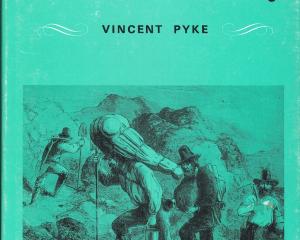
In a letter (ODT 6.4.24), Tom Phillips states "They [charter schools] are private/independent institutions which don’t need to follow the New Zealand curriculum and make their own rules".
While I do not have a particular opinion on charter schools, after nearly 15 years in secondary teaching I can completely see why school communities would be averse to following the New Zealand modus operandi.
In his book subtitled "Sportsman, Master, Mentor", the late Sir John Graham, a respected former headmaster of Auckland Grammar School, stated there are three major questions that should be at the forefront of an educator’s mind:
1. What will be taught?; 2: How will it be taught?; 3: How will it be assessed?
I completed my secondary schooling as one of the final cohort to sit school certificate and university bursary, before NCEA levels 1, 2 and 3 came into effect in 2002, 2003 and 2004.
My memories of my schooling days were that it was always very clear-cut in terms of what we had to know and how we were going to be assessed.
If we take school certificate history for example, every student across New Zealand was exposed to about six different prescribed topics (from a pool of about 10) over the course of the year, including such things as Israel/Palestine, the origins of World War 2, and race relations in South Africa.
From memory, these topics were very well-resourced and it was very clear what the assessment could look like, meaning that the main focus for teachers was probably more on how to get the message across and motivate the students in front of them.
Incidentally, I have no qualms about the prescriptive nature of the system. I think that knowing a little bit about a lot of different things has helped me hugely to make sense of the world as an adult, which specialising too early and at the whim of a teacher who might have a niche interest might not have achieved.
Unfortunately, as we have moved further away from the days of school certificate and university bursary, I do not believe that the "How will it be taught?" gets as much of a look-in these days — as much as teachers try.
The burden has instead fallen on classroom teachers to answer the other two questions, which were previously — and to a large extent — the domain of the Ministry of Education (MoE) and New Zealand Qualifications Authority (NZQA).
Nowadays, the reality is that, in many cases, rather than specifically and clearly stating what it is that we are wanting our students to do/learn/know and giving concrete examples in curriculum documents produced by the MoE, we are often confronted with a series of wishy-washy and long-winded statements that look more like the work of a second-rate philosopher.
To the credit of businesses like Walker Books and Nulake, they have somehow managed to interpret the MoE’s gobbledygook and produce resources that have enabled teachers across the country to produce stimulating learning experiences for their students.
As far as the NZQA — the organisation charged with preparing assessment — goes, I believe they are as bamboozled by the MoE as everyone else and fully believe — call me a conspiracy theorist — that at least some have used the work of the businesses mentioned above as the starting point for shaping their external examinations.
In 2016, I had the privilege of taking a year out of my regular teaching to spend a year working at a private school in Auckland. For the senior students at that school, they followed the UK-based and globally-renowned Cambridge qualification.
To say the least, I was impressed by the plethora of resources available that helped me to teach as effectively as possible. The curriculum was very clearly set out with what students had to be able to do — no philosophical drivel — and this was backed up by countless past examination papers that made me as a teacher feel ultra-confident that I had the students on the right track.
Unfortunately, I believe NZQA is miles behind the eight ball when it comes to putting out specimen papers and exemplars, yet I feel it is an utter lack of clarity from MoE that may in part be responsible for this.
Last month, the Minister of Education, Erica Stanford, sent an email to schools informing us that the implementation of the new NCEA level 2 and 3 standards (assessments), which were originally due to be introduced in 2025 and 2026, would now be delayed until 2028.
To me, this represents a massive vote of no-confidence in the direction that the previous government was wanting both curriculum and assessment to go and I am anticipating wholesale changes.
It is my earnest hope that Ms Stanford and co can work towards helping produce curriculum and assessment that is dead easy and not time-consuming for teachers to interpret, so that we don’t have to spend time wading through pages and pages of waffle and can instead spend as much of our time as possible working out how to help our learners.
- Elliott Carroll is a Balclutha teacher.












